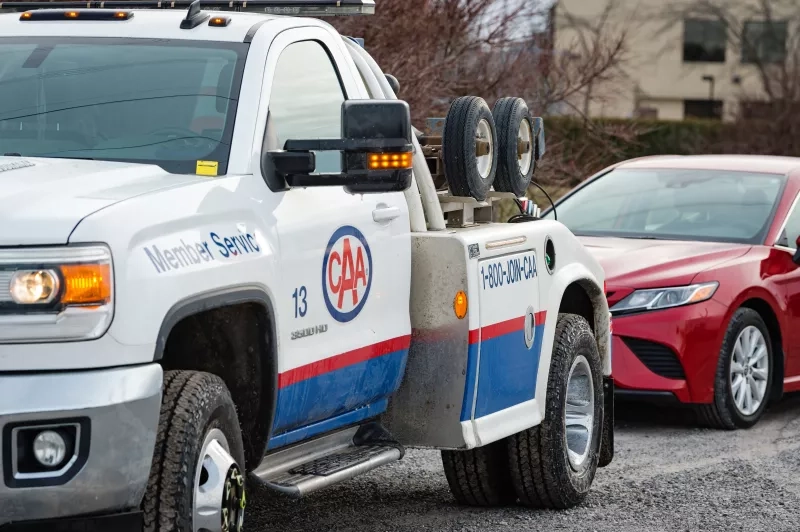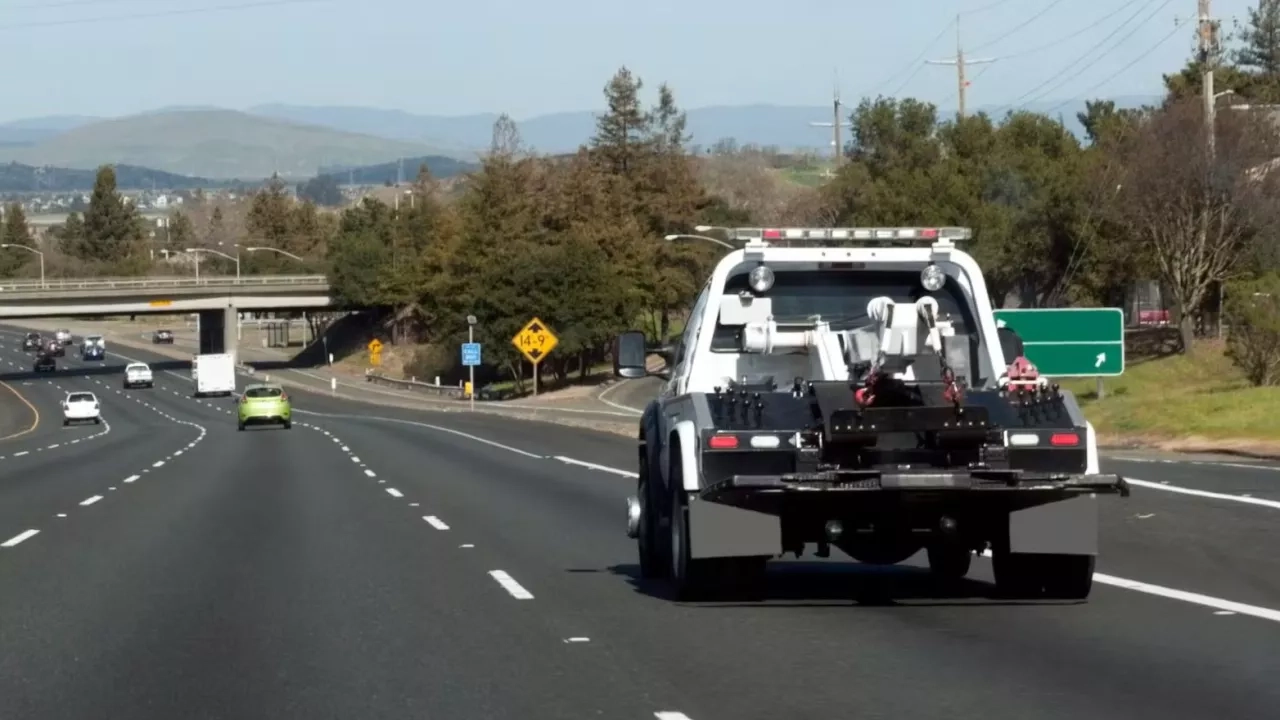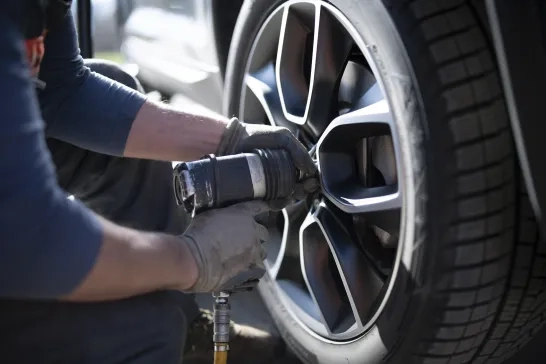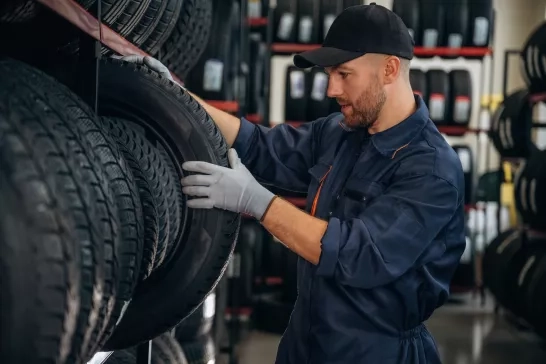Why is the Towing and Storage Safety and Enforcement Act (TSSEA) important?
Upholding integrity
The towing industry in Ontario has been marred by disreputable actors taking advantage of drivers during times of stress and vulnerability when they need assistance the most. Often, they use high-pressure tactics, misrepresent their services or charge inflated fees.
Enforcing regulations
For over a decade, CAA clubs in Ontario have actively worked with government officials and stakeholders in advocating for robust provincial regulation of the towing industry that protects consumers. On January 1, 2024, Ontario adopted these new rules and a code of conduct for tow operators under the TSSEA. CAA operates in full compliance with this new legislation. As always, CAA Members continue to receive the same trustworthy services upon which our reputation is built.

Needing a tow truck is no fun
Especially when you're in a stressful situation. It’s important to know your rights and be aware of the risks that come with being towed by a non-CAA tow truck operator. Bottom line? A CAA Membership is your best protection. Don’t have a CAA Membership? Sign up to take advantage of great deals and savings. CAA Memberships start at just $301 a year, plus tax.
What can you expect under these rules?
You have the right to decide who can tow your vehicle and to what location, unless otherwise directed by law enforcement.
Every tow truck operator and vehicle storage operator (company owner) must have a certificate to offer services in the province of Ontario. Every tow truck must clearly display its operator name and TSSEA certificate number on the truck. You have the right to see a copy of the certificate, in either physical or digital form.
Tow truck drivers must obtain written consent before they tow your vehicle. Without a signed agreement, Consent to Tow form, the tow operator cannot charge for towing services. (Note: Exemption from towing consent for membership-type or roadside assistance contract).
You must be provided with an itemized invoice before requesting payment and a proper receipt upon payment. (Note: Exemption from invoicing for services covered under membership-type or roadside assistance contract). The same is true for vehicle storage.
Rates cannot exceed the maximum rates published by the Ministry of Transportation. Drivers must supply the client with a list of maximum rates with the Consent to Tow form.
Referrals to a business, facility or person can only be given, if requested. Tow truck drivers and operators must disclose any benefit they receive when providing referrals to a person, business or facility.
Multiple payment methods (cash, cheque, credit card, debit) must be accepted.
Towed vehicles must be transported along the most direct route. The vehicle owner must be notified by the tow operator or tow truck driver when taken to a different location from the one the vehicle owner specified.
Tow operators must ensure every driver employed obeys the TSSEA regulations, the Highway Traffic Act and its regulations.
The customer must be allowed to retrieve personal property from towed vehicles at no charge. Storage operators must allow authorized persons access to retrieve personal items from vehicles during business hours or pre-arranged times, at no charge.
Consumers may register complaints with MTO’s towing office through this online portal on the Ontario.ca website. The Director of Towing will have the authority to issue, suspend or cancel a tow truck operator and vehicle storage operator certificate, including conditions to a certificate. Offences can be enforced by police, appointed TSSEA Inspectors, and MTO Enforcement Officers.
Towing laws FAQs
For more than a decade, CAA clubs in Ontario have been actively engaging with stakeholders and government officials to work toward provincial regulation of the towing industry. This is because the towing industry has been marred by disreputable actors attempting to take advantage of consumers in vulnerable places during times of stress. CAA Members who call for a tow can immediately identify our drivers, who are in contact with them throughout the process. CAA drivers and contractors follow a strict code of conduct and the provincial regulations governing the industry, called the Towing and Storage Safety and Enforcement Act (TSSEA).
With Ontario’s Towing and Storage Safety and Enforcement Act (TSSEA) in effect from January 1, 2024, drivers facing stressful scenarios are more protected from so-called chasers (opportunistic tow operators) and their inflated costs.
Under the act, tow truck operators must be licensed by the province and follow a code of conduct to operate. TSSEA also requires tow trucks to have clear signage and provide an itemized invoice of services rendered. These regulations aim to increase transparency and protect drivers from being overcharged or scammed by unscrupulous tow truck operators. Maximum tow fee rates will also be put in place along with a consumer complaint portal. You can read about the TSSEA in more detail here.
Immediately contact CAA to arrange a tow. It’s important to remain in your car to stay safe, unless your vehicle is in a dangerous situation. CAA will remain in contact with you by text or on the phone, and you can check where the driver is through the CAA App. If another tow operator approaches you, remain in your car and do not agree to sign anything or have your vehicle towed. In some instances, if you are on a 400 series highway, the police may require your vehicle be moved immediately, even if you have called CAA. In this instance, ask the tow operator to move your vehicle to the nearest safe location to CAA to meet you.
1. Visit caaneo.ca/termsandconditions for full Membership Terms and Conditions. Terms and conditions apply.





